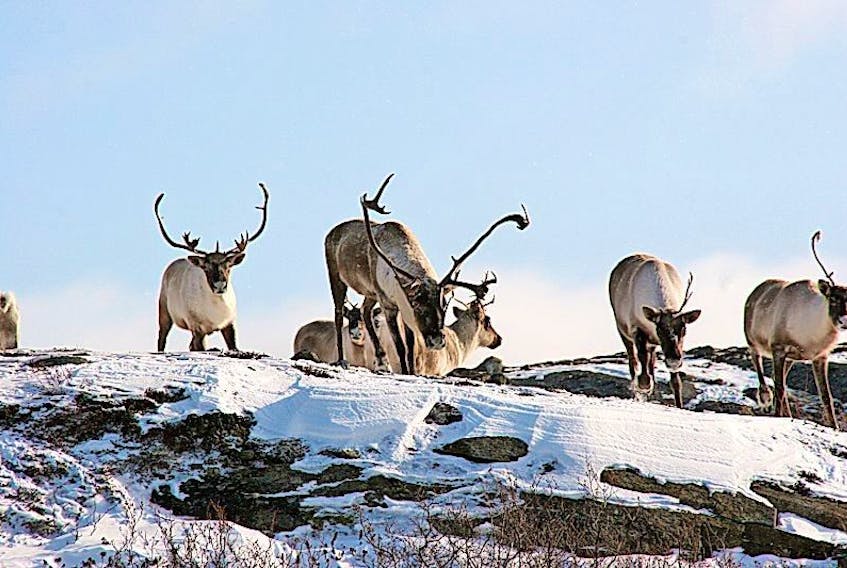It may be hard to admit, but it looks like the provincial government is prepared to twiddle its fingers until an entire northern caribou herd is completely extinguished.
The latest census of the George River caribou herd is in, and the numbers are worse than discouraging — they’re downright terrifying.
Keep in mind, the herd had 385,000 animals in 2001. Nine years later, the number was 74,000. Even with a halt to hunting in 2013, by 2016 the numbers had fallen to 8,900 animals.
Now, the number is 38 per cent lower, at just 5,500 caribou.
If you go back to that COSEWIC report in 2017, the cold hard science is alarming: if the current trends continue, within three generations, there’s a 20 per cent chance that the George River herd will be extinct. That’s within the next 18 to 27 years.
The provincial government’s news release on the latest decline reads a little bit like a half-hearted apology for making the wrong decision: “In 2017 the Committee on the Status of Endangered Wildlife in Canada (COSEWIC) recommended listing the George River Caribou Herd as Endangered. The provincial government considered the recommendation and — at the specific request of Indigenous governments and communities in Labrador — decided not to list, and agreed to develop a co-management approach between Indigenous governments and communities and the government of Newfoundland and Labrador.”
If you go back to that COSEWIC report in 2017, the cold hard science is alarming: if the current trends continue, within three generations, there’s a 20 per cent chance that the George River herd will be extinct. That’s within the next 18 to 27 years.
“(The) overall threat score for the … population was ‘Very High to High,’ based on an accumulation of threats but mainly from predicted impacts from mining activity, associated roads and increased access, hunting, increased fire events, and vegetation change associated with climate change,” the report says. (Caribou depend on lichen, and increasing temperatures in the north are seeing areas of lichen replaced by other plants.)
Well, that certainly has not worked — nor does the half-hearted response that Fisheries and Land Resources Minister Gerry Byrne was quoted as giving in his department’s news release: “The continued decline in George River Caribou Herd numbers is serious and disturbing. My department continues to reach out to Labrador Indigenous governments and communities, the Government of Quebec, and the federal government to develop a co-management approach that would support the recovery of these iconic and vital animals.”
The COSEWIC report does not mince words about the issues: “In summary, unsustainable harvest (overharvest) rates by humans is a known threat. … It appears that sociopolitical issues between governments will result in some level of ongoing harvest. The impact of harvest will increase as the caribou populations decline.”
Reading between the lines in the province’s news release, it sure sounds like COSEWIC is right.
So, by all means, continue reaching out for that co-management approach, at least for the next 18 years or so until it simply doesn’t matter anymore.
We’re fiddling while Rome burns.









